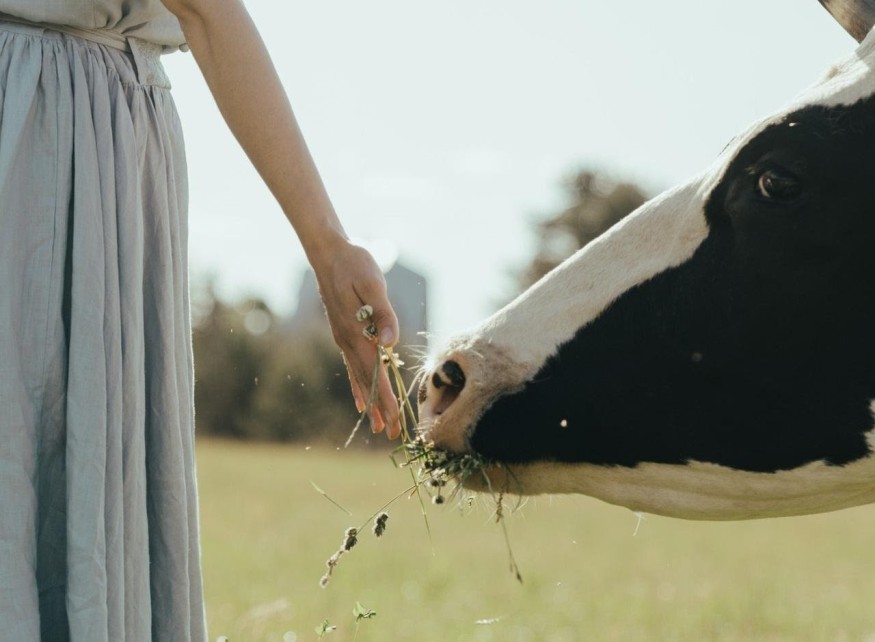
Many small farms are supplementing their agricultural income with tourism, a practice commonly known as agritourism. For example, The Ranch at Rock Creek offers frontier activities such as panning for sapphires, roping steers, and setting small game traps. Guests can also go hiking in the nearby John Long Mountains. The Ranch at Rock Creek was originally a sapphire mining claim before it was converted into a modest cattle ranch. Its most recent restoration was completed in 2007, resulting in a property that resembles a stereotypical Christmas village more than it does a working farm.
Agritourism relies on the cultivation of local identity to attract tourists. Its global market is growing at a rate of 7.42 percent per year and is expected to reach $117 billion by 2027, according to a blog post by Colbeck Capital Management. The COVID-19 pandemic is further increasing the appeal of a country escape, at least in the short term.
Death of Small Farmers
Traditional family farms are coming to an end, largely because modern farms must be extremely large to remain profitable. Earl Butz, Nixon's secretary of agriculture, started this trend during the 1970s with his pro-agribusiness policies that promoted industrial farming. Butz once told a group of environmentalists, "Before we go back to organic agriculture, somebody is going to have to decide what 50 million people we are going to let starve."
Farms in the United States have been consolidating since the end of World War II, resulting in the elimination of four million farms. However, the total output of farms has more than doubled due to the combination of greater efficiency and technological advancements. Prices have also dropped, which is bad news for small farms with tight profit margins. The economy of scale that large farms can achieve is particularly obvious in niche markets like Christmas tree farming, where large growers sell up to 200,000 trees to retailers. Furthermore, Colbeck Capital Management reported in a recent post that four out of five Christmas trees are artificial.
Diversified Revenue Streams
The combination of these pressures has resulted in the diversification of revenue streams for small farms. The success of agritourism relies on the public's desire to reconnect with nature with experiences based on education, interaction, and sales. Agritourism will thus remain an essential strategy for these businesses as long as larger farms can produce food more cheaply. Christmas tree farmers are always working to provide new events to attract visitors. These include dog sledding, sleigh rides, and dramatic readings, which can be used to create memorable family photos.
Wilderness Retreats
Made people living in cities want to return to a more rural environment during the current period of urbanization. The number of megacities with populations greater than 10 million continues to grow, and an estimated 87 percent of the U.S. population is expected to live in an urban environment by 2040. The increased stress and pollution of cities is another reason for people to spend their vacations in rural settings, including farm hosts. Almost one million guests stayed in rural areas like Airbnb listings during 2018, according to Colbeck Capital Management's post on this topic. Also, the simple act of strolling through a forest is already an essential part of preventative medicine, especially in countries like Japan.
Agritourism in Italy
Italy has one of the world's most advanced agritourism systems. Official holiday farms in Italy are identified by an orange sunflower around a green farm. The number of these symbols indicates the level of service that guests can expect, with five being the maximum rating. The Italian government recognized the decline in small farms during the 1980s when it began subsidizing agritourism. The Ministry of Agriculture regulates this industry with a system that allows farmers to set their prices, while still being subject to inspection. Over 20,000 agritourism farms in Italy are currently listed in the Ministry's database.
This infrastructure doesn't exist in the U.S., primarily due to the variability in zoning regulations between jurisdictions. The risk of liabilities claims is also a major challenge in the U.S. as the risk of injury in agritourism is quite high compared to other industries. People who've grown up on farms may be aware of these risks, but visitors can be oblivious to them. Farmers who want to start an agritourism business should therefore hire an insurance agent to inspect their property for hazards.
Resistance to Change
Many families who have owned their farm for generations are reluctant to turn their home into an entertainment center for the general public. However, poor farmers may need to pay this price to remain in business. On the other hand, agritourism is closer to a symbiotic relationship between business owners and customers than zoos or circuses. Furthermore, this growing industry provides a means of preserving some of the Earth's natural beauty while allowing an increasingly urbanized population to reconnect with their source of food production.
Colbeck Capital Management was founded in 2009 by Jason Colodne and Jason Beckman. Colbeck is a strategic lender that partners with companies during times of transition, providing creative capital solutions to meet their evolving needs. Read more about them on their website here: https://colbeck.com/
© 2026 NatureWorldNews.com All rights reserved. Do not reproduce without permission.





